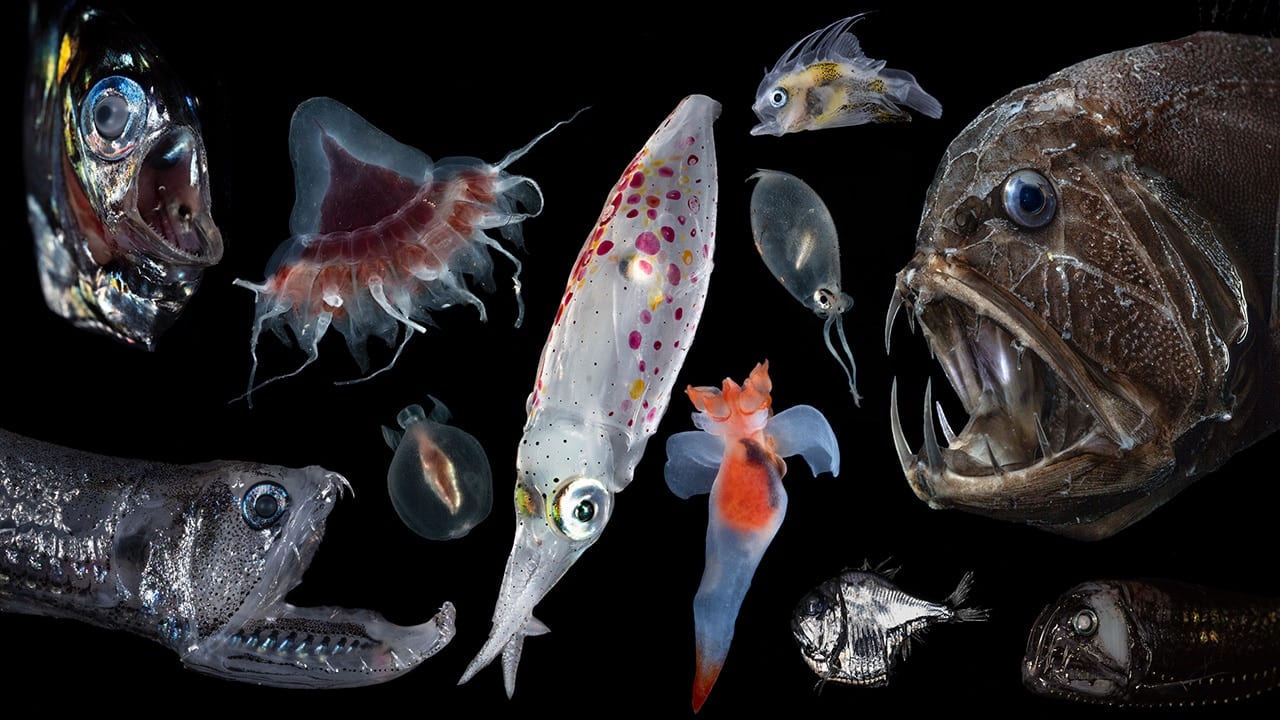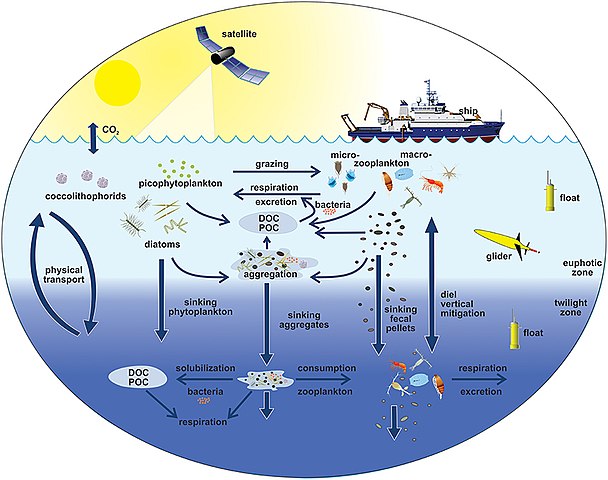 When we discuss our warming planet, extreme weather events come to mind. We, however, overlook the impact of warming temperatures on our oceans.
When we discuss our warming planet, extreme weather events come to mind. We, however, overlook the impact of warming temperatures on our oceans.
A new study published by researchers from the University of Exeter explores the link between warming temperatures and the impacts on the ocean’s twilight zone.
The twilight zone is a region of the ocean that lies between the upper ocean and deep ocean and is located approximately 200 to 1000 meters under the surface.
Let us dive into the twilight zone and explore its significance to how our planet operates.
Ocean Twilight Zone: The Significance
In the upper ocean, tiny plant-like organisms called phytoplankton convert carbon from the atmosphere into organic matter through the process of photosynthesis.
This formation of organic matter, along with other waste matter produced by ocean organisms, produces “marine snow." This helps initiate the ocean’s complex food web as organic matter and other carbon-based products sink away from the surface and move through the depths of the ocean.
 This process by which the heat-trapping carbon is stored in deep waters instead of being released into the atmosphere is known as the "biological carbon pump" -- an essential set of processes that regulate the Earth’s climate system.
This process by which the heat-trapping carbon is stored in deep waters instead of being released into the atmosphere is known as the "biological carbon pump" -- an essential set of processes that regulate the Earth’s climate system.
The ocean’s twilight zone is also home to a biodiverse ecosystem that includes glowing and bioluminescent lantern sharks and kite fin sharks. These creatures have adapted to the high-pressure, low-temperature, low-light environment, and we are still learning more about the species that live there.
Twilight zone animals consume matter near the upper ocean during the night and return to the deeper waters during the day, directly transferring carbon from the ocean surface to the deep ocean. In this way, the organisms in the twilight zone not only play a vital role in biodiversity but also regulate our Earth's climate.
Impact of Warming Temperatures
The study suggests that up to 40% of twilight zone creatures could disappear by the end of the century.
This is because rising temperatures increase the rate at which organic matter is decomposed and eaten by bacteria in the upper ocean. As a result, less carbon sinks into the twilight zone and beyond for storage as organic matter. Given that organisms in the twilight zone are highly dependent on sinking organic matter, this could endanger their complex food cycles.
The study also shows that creatures in the twilight zone only evolved in the last 15 million years. As our planet cooled and entered the ice age, deeper waters acted as a refrigerator, preserving food for longer and allowing life to thrive.
However, the authors tell us that we have not yet reached an "irreversible point" and that there is still time for us to act to reduce human emissions. Not only will this increase our ocean's carbon cycling processes but also preserve the biodiversity in the deepest parts of our oceans.
Sources: Nature, Guardian, WHOI







